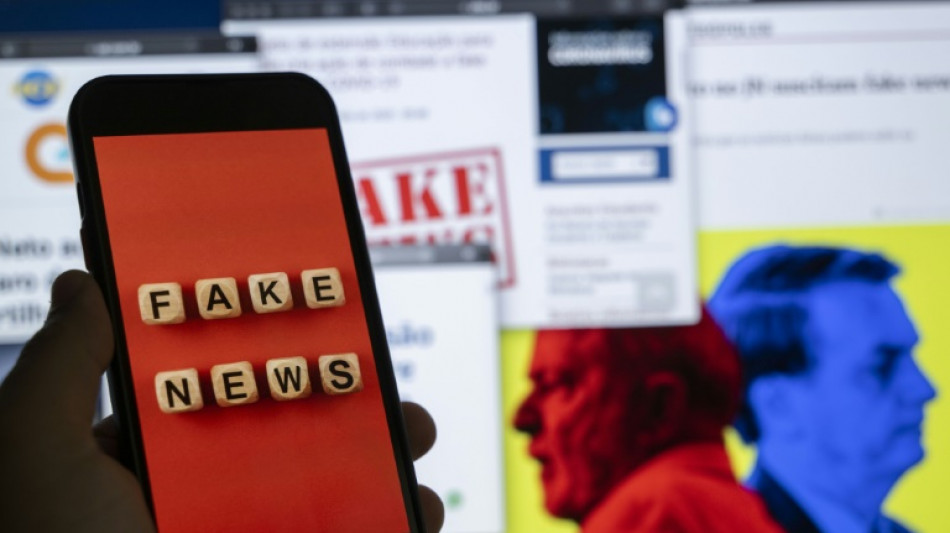
-
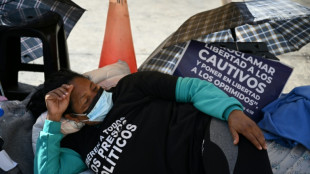 Relatives of Venezuela political prisoners begin hunger strike
Relatives of Venezuela political prisoners begin hunger strike
-
Trump's 'desire' to own Greenland persists: Danish PM

-
 European debate over nuclear weapons gains pace
European debate over nuclear weapons gains pace
-
Newcastle oust 10-man Villa from FA Cup, Man City beat Beckham's Salford

-
 Auger-Aliassime swats aside Bublik to power into Rotterdam final
Auger-Aliassime swats aside Bublik to power into Rotterdam final
-
French prosecutors announce special team for Epstein files

-
 Tuipulotu 'beyond proud' as Scotland stun England
Tuipulotu 'beyond proud' as Scotland stun England
-
Jones strikes twice as Scotland end England's unbeaten run in style

-
 American Stolz wins second Olympic gold in speed skating
American Stolz wins second Olympic gold in speed skating
-
Marseille start life after De Zerbi with Strasbourg draw

-
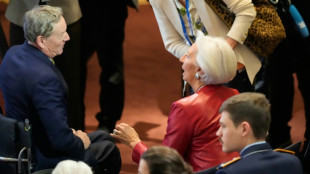 ECB to extend euro backstop to boost currency's global role
ECB to extend euro backstop to boost currency's global role
-
Canada warned after 'F-bomb' Olympics curling exchange with Sweden

-
 Ultra-wealthy behaving badly in surreal Berlin premiere
Ultra-wealthy behaving badly in surreal Berlin premiere
-
250,000 at rally in Germany demand 'game over' for Iran's leaders

-
 UK to deploy aircraft carrier group to Arctic this year: PM
UK to deploy aircraft carrier group to Arctic this year: PM
-
Zelensky labels Putin a 'slave to war'

-
 Resurgent Muchova beats Mboko in Qatar final to end title drought
Resurgent Muchova beats Mboko in Qatar final to end title drought
-
Russia's Navalny poisoned with dart frog toxin: European states
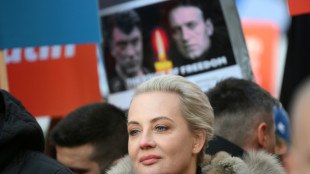
-
 Farrell hails Ireland's 'unbelievable character' in edgy Six Nations win
Farrell hails Ireland's 'unbelievable character' in edgy Six Nations win
-
Markram, Jansen lead South Africa to brink of T20 Super Eights

-
 Guehi scores first Man City goal to kill off Salford, Burnley stunned in FA Cup
Guehi scores first Man City goal to kill off Salford, Burnley stunned in FA Cup
-
Swiss say Oman to host US-Iran talks in Geneva next week

-
 Kane brace helps Bayern widen gap atop Bundesliga
Kane brace helps Bayern widen gap atop Bundesliga
-
Ireland hold their nerve to beat gallant Italy in Six Nations thriller

-
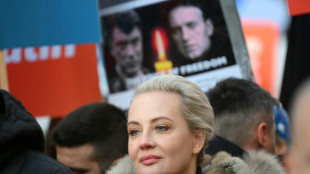 European states say Navalny poisoned with dart frog toxin in Russian prison
European states say Navalny poisoned with dart frog toxin in Russian prison
-
Braathen hails 'drastic' changes after Olympic gold

-
 De Minaur eases past inconsistent Humbert into Rotterdam final
De Minaur eases past inconsistent Humbert into Rotterdam final
-
Eurovision 70th anniversary live tour postponed

-
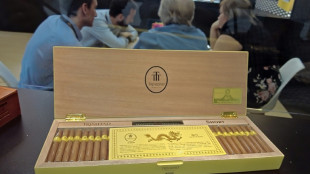 Cuba cancels cigar festival amid economic crisis
Cuba cancels cigar festival amid economic crisis
-
Son of Iran's last shah urges US action as supporters rally in Munich

-
 Jansen helps South Africa limit New Zealand to 175-7
Jansen helps South Africa limit New Zealand to 175-7
-
Braathen wins unique Winter Olympic gold for Brazil, Malinin seeks answers

-
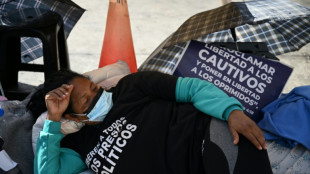 Relatives of Venezuela political prisoners begin hunger strike after 17 freed
Relatives of Venezuela political prisoners begin hunger strike after 17 freed
-
Ten-man West Ham survive Burton battle to reach FA Cup fifth round

-
 International crew set to dock at space station
International crew set to dock at space station
-
Suryakumar says India v Pakistan 'not just another game'

-
 Brook hails 'brilliant' Banton as England back on track at T20 World Cup
Brook hails 'brilliant' Banton as England back on track at T20 World Cup
-
Brazilian Olympic champion Braathen is his own man - and Norway's loss

-
 About 200,000 join Iran demonstration in Munich: police
About 200,000 join Iran demonstration in Munich: police
-
Where did it all go wrong for 'Quad God' Malinin?

-
 Brazil's Braathen wins South America's first ever Winter Olympic gold
Brazil's Braathen wins South America's first ever Winter Olympic gold
-
Banton powers England to victory over Scotland at T20 World Cup

-
 Zelensky says all Ukrainian power plants damaged, calls Putin 'slave to war'
Zelensky says all Ukrainian power plants damaged, calls Putin 'slave to war'
-
Palestinian leader urges removal of all Israeli 'obstacles' on Gaza ceasefire
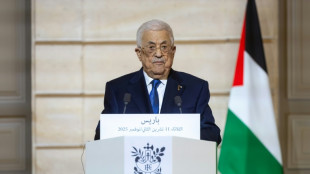
-
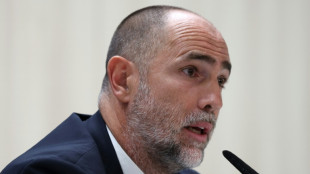 Igor Tudor hired as Tottenham interim manager
Igor Tudor hired as Tottenham interim manager
-
Rubio tells Europe to join Trump's fight, says it belongs with US
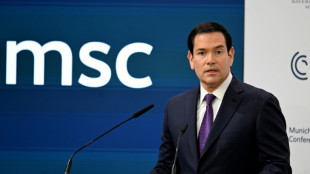
-
 Winter Olympians have used 10,000 condoms
Winter Olympians have used 10,000 condoms
-
Weston's skeleton Olympic gold a triumph over adversity

-
 England bowl Scotland out for 152 in T20 World Cup
England bowl Scotland out for 152 in T20 World Cup
-
Bangladesh PM-to-be Rahman thanks those who 'sacrificed for democracy'
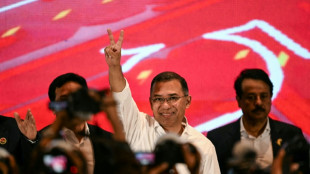

Lies, damn lies and social media: fake news stalks Brazil vote
In a divisive election campaign blighted by fears of unrest if far-right President Jair Bolsonaro refuses to accept defeat, Brazil is waging an uphill battle against disinformation wielded as a political weapon.
Analysts say Bolsonaro's 2018 electoral victory was in no small part due to an effective fake news smear campaign against his opponents.
Four years later, his backers have sought to replicate that feat, turning their attention to leftist ex-president and opinion poll frontrunner Luiz Inacio Lula da Silva.
"Disinformation has run wild" on newer platforms such as Telegram and TikTok, which allow for the rapid dissemination of easily manipulated video content, says Ana Regina Rego, coordinator of the National Network to Combat Disinformation.
Social media videos and other posts have sought to portray Lula, among other things, as an alcoholic who will shut down churches if elected in October.
Bolsonaro also has been targeted by fake news posts that have questioned, for example, whether he was really stabbed on the campaign trail in 2018.
And despite nonstop work to debunk these and other false claims, such posts find fertile ground in a country where a 2018 study found that almost half of Brazilian voters relied on WhatsApp to read news about politics and elections.
The figure was even higher among Bolsonaro voters.
In 2022, spreaders of disinformation have even more avenues including Telegram, the fast-growing messaging system that Bolsonaro has publicly embraced after having posts blocked on Facebook, Twitter and YouTube.
Despite stricter rules adopted and better policing introduced against fake news, experts say new technology is complicating the task.
- Facts, lies, sensationalism -
The reach of fake news is impressive.
Three TikTok videos alleging to show Lula getting drunk on a transparent liquid -- which is actually water -- were seen 6.6 million times, while another five on the same platform that try to cast doubt on Bolsonaro's stabbing had 3.3 million views.
Content that combines "facts, lies and decontextualizations with sensationalism has a 70 percent greater chance to go viral than something informative," Rego noted.
TikTok told AFP its policy is to withdraw content that violates its "community norms" and may affect the electoral process, and to avoid highlighting "potentially misleading information that cannot be verified."
At the outset of the 2022 presidential campaign, Supreme Electoral Court president Alexandre de Moraes vowed the justice system would be "resolute" in the fight against fake news.
And there have been some successes.
Moraes has since ordered social networks to remove several Bolsonaro posts on grounds of disinformation, along with many others from his supporters.
The court oversaw the creation of a group with companies such as Facebook, Instagram, WhatsApp, Google and TikTok to screen out fake news and report offenders.
Campaigns have been rolled out to boost digital literacy among social media users.
WhatsApp agreed to delay until after the election the launch in Brazil of a new "Communities" feature that would allow the creation of groups of groups, with administrators able to send messages to all -- thus vastly increasing the potential for viral information spread.
Telegram bowed to pressure to take down disinformation content under threat of being blocked for not collaborating with the authorities.
"Without the collaboration of the platforms, it is very difficult" to pursue the spreaders of disinformation, said sociologist Marco Aurelio Ruediger of the Getulio Vargas Foundation, a Rio think tank.
"It takes a long time to adopt punitive measures, and by then the damage is already done, because the information has already circulated," he said.
- 'Even worse' -
It is not only on social media, however, where lies are spread.
Bolsonaro himself has repeatedly criticized Brazil's electronic voting system, which he alleges -- without evidence -- is riddled with fraud.
The president is under investigation for the claims.
Bolsonaro, who is fond of saying "only God" can remove him from office, has warned Brazil faces "an even worse problem than the United States."
This has led to fears that his supporters might not accept the results, and that Brazil could see a burst of violence akin to the attack on the US Capitol in January 2021 in the wake of Donald Trump's loss to Joe Biden.
Trump's backers were riled up in part on social media, where Bolsonaro has tens of millions of followers.
"I fear that the results will not be accepted and that violence will be encouraged; we could experience a situation similar to that of the United States," said Ruediger.
S.AbuJamous--SF-PST


